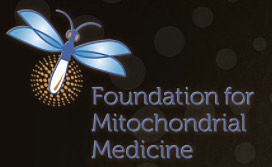Southeast Regional Symposium on Mitochondrial Medicine is April 7-8 in Birmingham

 Co-sponsors The Foundation for Mitochondrial Medicine (FMM) and The United Mitochondrial Disease Foundation (UMDF) have announced that the Southeast Regional Symposium on Mitochondrial Medicine, will be held
Co-sponsors The Foundation for Mitochondrial Medicine (FMM) and The United Mitochondrial Disease Foundation (UMDF) have announced that the Southeast Regional Symposium on Mitochondrial Medicine, will be held  April 7-8 in Birmingham, Ala.
April 7-8 in Birmingham, Ala.
A full day of clinical/medical (CME) sessions will be conducted on Friday, April 7 at the Grand Bohemian Hotel, with a half-day of free educational program sessions for patients and families slated for April 8 at Birmingham Botanical Gardens. Both groups will gather at a Friday night networking reception.
The theme of this year’s symposium will be “Understanding Mitochondrial Disease and Mitochondrial Dysfunction: Opportunities and Impacts in the Clinic and Laboratory.” Mitochondrial disease affects roughly one in 2,500 people, and can be a contributing factor in development of a vast spectrum of diseases ranging in seriousness from subtle to devastating. It can affect persons of all ages, as well as being partly responsible for the aging process itself. While children are affected most often, onset can occur at any age.
A feature element of the symposium program will be a focus on the latest developments in bioenergetics bioenergetics research conducted at the University of Alabama at Birmingham’s Mitochondrial Medicine Laboratory, in conjunction with Seahorse Bioscience (now part of Agilent Technologies).
Symposium attendees will join thought leaders in the fields of mitochondrial disease, research science, organizational leadership, Alzheimer’s, Parkinson’s, cancer, autism and other disorders.
The Symposium keynote address featuring the engaging intersection of science and human performance will be delivered April 7 at 6 p.m. by Andrew Deustcher, senior vice president, client development, and senior facilitator of The Energy Project. He will discuss “Human Energy and Performance: Transforming the Way We Work and Live.”
The Friday, April 7, CME sessions will run from 8 a.m. to 5 p.m., and are directed toward clinicians interested in all aspects of mitochondrial medicine. This educational program content was determined by rigorous assessment of educational needs and includes surveys, program feedback, expert faculty assessment, literature review, medical practice, and new medical knowledge.
The Friday sessions will include didactic lectures presented by invited experts including:
Bruce H. Cohen, MD, Akron Children’s Hospital;
Leon S. Dure, MD, Children’s Hospital of Alabama;
Michio Hirano, MD, Columbia University;
Shilpa Iyer, PhD, University of Arkansas;
Amel Karaa, MD, Massachusetts General Hospital;
Robin Morris, PhD, Georgia State University;
Diana Shineman, Alzheimer’s Drug Discovery Foundation;
Victor Darly-Usmar, PhD; Matt Goldberg, PhD; and Keshav Singh, PhD, all of the University of Alabama at Birmingham.
There will be time provided for professional discussion both in and out of meeting rooms and throughout the conference. The full symposium sessions and events schedule can be found here: The program is free, but organizers request that attendees register.
“This year’s Southeast Regional Symposium is a prime example of fueling connections, and we are looking forward to showcasing this collaborative effort in Birmingham, Alabama,” the UMDF and FMM said in a joint statement.
Mitochondrial disease is an energy production problem. The mitochondria, which are present in all cells of the body except for red blood cells, are responsible for creating 90% of the energy needed to sustain life, growth and support organ function. When mitochondria malfunction, less energy is produced, which results in cell injury or cell death in major organ systems, especially in parts of the body such as the heart, brain, muscle systems, and lungs that require the greatest amounts of energy.
Difficult to diagnose because it affects individuals differently, mitochondrial disease symptoms can include seizures, strokes, severe developmental delays, inability to walk, talk, see, or digest food. The UMDF notes that mitochondrial pathophysiology is now a recognized part of many disease processes, including heart disease, cancer, AIDS and diabetes.







